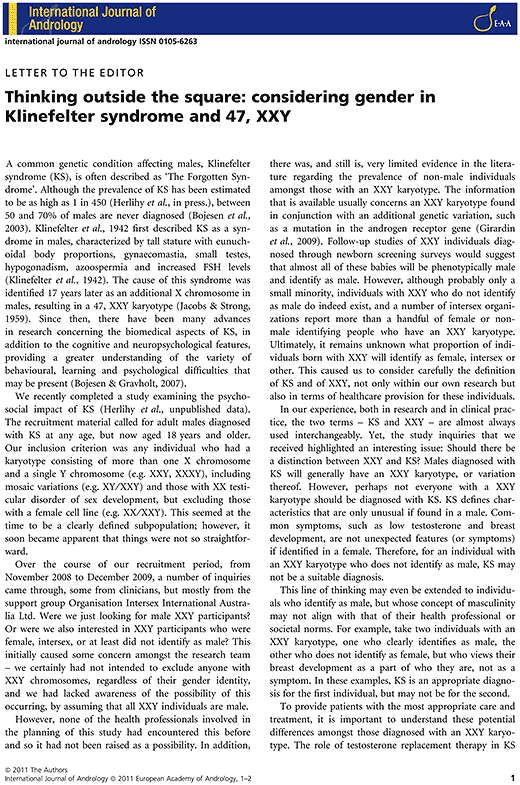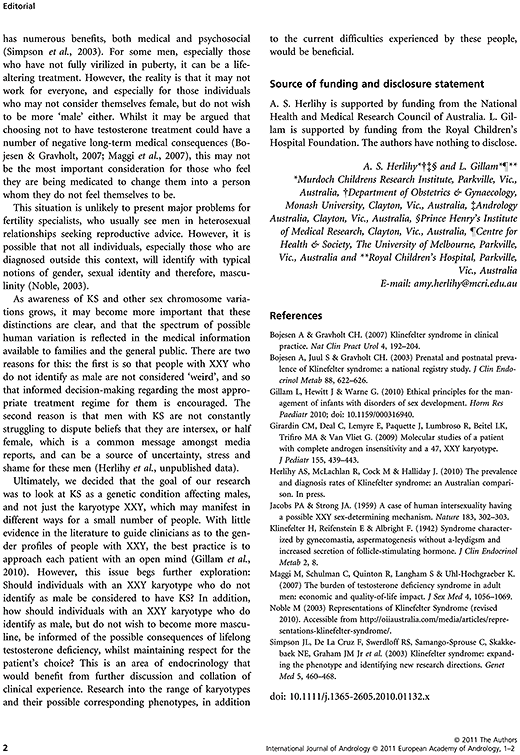Breakthrough: XXY researchers acknowledge not all XXY people are male
Researchers at a cluster of Melbourne medical institutes, hospitals and universities have acknowledged in a letter to the editor of the International Journal of Andrology, The Official Journal of the European Academy of Andrology, that not all people with the XXY karyotype are male and that some may be female and some may be intersex.
A.S. Herlihy and L. Gillam of Murdoch Childrens Research Institute, Department of Obstetrics & Gynaecology at Monash University, Andrology Australia, Prince Henry’s Institute of Medical Research, Centre for Health & Society and Royal Children’s Hospital, Parkville, consider the possibility in In Thinking outside the square: considering gender in Klinefelter syndrome and 47, XXY, recently published in the International Journal of Andrology.

… Over the course of our recruitment period, from November 2008 to December 2009, a number of inquiries came through, some from clinicians, but mostly from the support group Organisation Intersex International Australia Ltd. Were we just looking for male XXY participants? Or were we also interested in XXY participants who were female, intersex, or at least did not identify as male? This initially caused some concern amongst the research team – we certainly had not intended to exclude anyone with XXY chromosomes, regardless of their gender identity, and we had lacked awareness of the possibility of this occurring, by assuming that all XXY individuals are male….

… With little evidence in the literature to guide clinicians as to the gender profiles of people with XXY, the best practice is to approach each patient with an open mind. However, this issue begs further exploration: Should individuals with an XXY karyotype who do not identify as male be considered to have KS? In addition, how should individuals with an XXY karyotype who do identify as male, but do not wish to become more masculine, be informed of the possible consequences of lifelong testosterone deficiency, whilst maintaining respect for the patient’s choice? This is an area of endocrinology that would benefit from further discussion and collation of clinical experience. Research into the range of karyotypes and their possible corresponding phenotypes, in addition to the current difficulties experienced by these people, would be beneficial.
You must be logged in to post a comment.